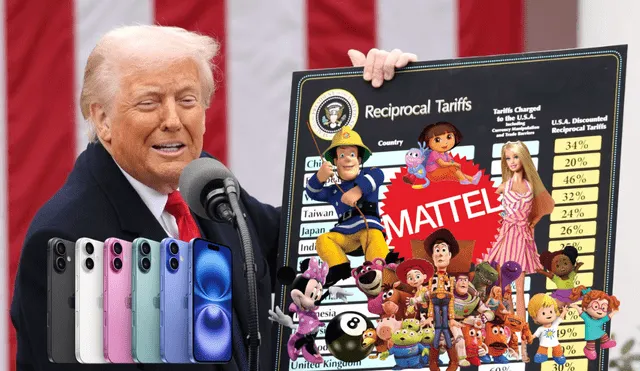Trump threatens tariffs on Apple and Mattel amid disputes over production and executive decisions
Trump warns of 25% tariffs on Apple iPhones and 100% on Mattel toys over outsourcing and CEO remarks.

President Donald Trump is once again ramping up tariffs, this time on American companies namely Apple and Mattel. His most recent comments hint at possible import taxes on key products such as iPhones and toys in response to disagreements with the companies' production decisions and corporate decisions.
These threats are particularly interesting because of the ongoing legal ambiguity. The U.S. Court of International Trade has challenged the president's power to impose tariffs without congressional input, although a later ruling temporarily stayed that judgment. Nevertheless, Trump seems to have intentions of utilizing tariffs more as leverage than actual economic policy.
Tariff pressure on Apple over foreign manufacturing
Trump has taken notice of Apple’s move to relocate iPhone production from China to India. He criticized the decision, cautioning consumers that iPhones not built in the United States, would be subject to a potential 25% tariff. While initially directed only at Apple, Trump later clarified that the tax/given the tax would cover any and all imported smartphones, including Samsung phones, in an attempt at what he termed "fairness" in the market.
If such taxes were to be implemented as Trump suggested, this could have a drastic impact on price points for smartphones in the United States: an idea that obviously would not sit well with consumers and the market. Apple has not yet issued a public statement concerning the President's warning.
Mattel faces 100% tariff threat on toy imports
Trump also made a loud statement to toy maker Mattel threatening a 100% tariff on all toys imported to the U.S. His comment was a response to Mattel’s CEO who stated Mattel had no plans to bring production back to the U.S. since its too expensive. While he did not explain if the tax would be for all toys generally or for Mattel’s imported toys, the comment is best understood as a court of last resort to prod companies to build things in the U.S.
As legal scholars have pointed out, it’s more complicated to justify tariffs on toys based on national security (typcially using Section 232 of U.S. trade law) than for technology or crucial goods. Moreover, analysts argue these threats of tariffs may also be politically motivated as a way to create behavior change within companies, as opposed to implementing some enforceable policy.













